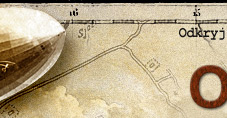

Henry Harrer's Tractatus contra Beghardos
EspritRok wydania: 2015
ISBN: 978-83-64647-64-2
Oprawa: twarda
Ilość stron: 216
Wymiary: 170 * 240
Dostępność: Dostępna za 3-5 dni
49.00 zł
Przedstawiony w niniejszej monografii erudycyjny Traktat przeciwko begardom, autorstwa czeskiego dominikanina Henryka Harrera OP, jest pierwszorzędnym źródłem do badań nad antyheretycką działalnością dominikanów, nad dziejami beginek i begardów oraz nad formowaniem się nowej pobożności wśród osób świeckich. Co szczególnie ważne, tekst ten jest obecnie jedynym znanym źródłem mówiącym wprost o obecności w diecezji krakowskiej, w pierwszej połowie XIV w., grupy osób, których praktyki religijne i poglądy były uznawane przez część lokalnego duchowieństwa za heretyckie. Kim byli ci małopolscy odstępcy od wiary? Dla dominikanina Henryka Harrera odpowiedź była oczywista – begardzi heretycy.
Książka w języku angielskim.
Tractatus contra beghardos, written by a Czech Dominican brother Henry Harrer, is a work of unique value both for historians specialising in medieval heterodoxic movements and scholars focusing on the history of theology and law in the 14th century.
Less recent research, informed by the findings of Father Paweł Kielar OP, established that Henry Harrer was a religious who belonged to the Polish Province of the Preaching Order, a papal inquisitor for the Krakow diocese and the author of the oldest Thomistic work in Poland. However, a new analysis of source material pertaining to Harrer demonstrates that these assumptions were wrong. Today, we can reconstruct Harrer's biography anew. Harrer might have been a descendant of a documented Harrer family from Prague. Both the date and the exact location of his entry into the Czech Province of the Preaching Order are unknown. He most likely professed his vows in St. Clement Convent in Prague and surely completed lengthy philosophical and theological studies in Dominican academic centers. Both the Treatise Against Beghards and his involvement in in causa fidei trials demonstrate his specialization in law. However, he was not a papal inquisitor. He was respected in the Prague Church milieu as he was appointed a member of consilium sapientium in 1320 by bishop Jan of Dražic. For reasons that remain unknown, he left the Dominican Order in 1334. The remainder of his life and the date of his death are also unknown. His departure from the Order inevitably affected the reception of his works. We can suppose that the Treatise Against Beghards either remained in the library collections of the Prague convent or in his private library. We do not know if this work ever came to Krakow at that time. The only known copy of the Treatise was made either in the nineties of the 14th century or in the first years of the 15th century, most likely in Bohemia; from there, it was transported to the Dominican convent of Wrocław. The Treatise was written between 1328 and 1334; more precisely, some available data leads us to situate its origin in 1329. Most likely, the work was commissioned by Krakow Dominicans: the brothers noticed that, both in Krakow and in the entire diocese, a certain group of individuals, probably laypeople, clearly differed from other faithful in terms of their religious practices. Since, in the eyes of the brothers, the reaction of the local authorities, especially the episcopal inquisitor Peter of Opatow, was inadequate, they hired the Czech expert to evaluate or, better still, prove the evident harmfulness of, the activities of these suspects. A few Polish witnesses provided Harrer with appropriate information on the supposed heretics. Harrer discusses and organizes this information in three sections: an improper way of life, contempt for the sacrament of the Eucharist and persistence in error.
The erudite Treatise Against Beghards is a first-class source to investigate anti-heretical activities of the Dominicans, the history of Beguines and Beghards and the formation of new devotional trends among laity. The text is particularly important as the only known source of information on an early 14th century group who some members of their local clergy considered heretical in their religious practices and views. Who were these supposed apostates from Lesser Poland? To Henry Harrer, the response was clear: Beghard heretics.
Książka w języku angielskim.
Tractatus contra beghardos, written by a Czech Dominican brother Henry Harrer, is a work of unique value both for historians specialising in medieval heterodoxic movements and scholars focusing on the history of theology and law in the 14th century.
Less recent research, informed by the findings of Father Paweł Kielar OP, established that Henry Harrer was a religious who belonged to the Polish Province of the Preaching Order, a papal inquisitor for the Krakow diocese and the author of the oldest Thomistic work in Poland. However, a new analysis of source material pertaining to Harrer demonstrates that these assumptions were wrong. Today, we can reconstruct Harrer's biography anew. Harrer might have been a descendant of a documented Harrer family from Prague. Both the date and the exact location of his entry into the Czech Province of the Preaching Order are unknown. He most likely professed his vows in St. Clement Convent in Prague and surely completed lengthy philosophical and theological studies in Dominican academic centers. Both the Treatise Against Beghards and his involvement in in causa fidei trials demonstrate his specialization in law. However, he was not a papal inquisitor. He was respected in the Prague Church milieu as he was appointed a member of consilium sapientium in 1320 by bishop Jan of Dražic. For reasons that remain unknown, he left the Dominican Order in 1334. The remainder of his life and the date of his death are also unknown. His departure from the Order inevitably affected the reception of his works. We can suppose that the Treatise Against Beghards either remained in the library collections of the Prague convent or in his private library. We do not know if this work ever came to Krakow at that time. The only known copy of the Treatise was made either in the nineties of the 14th century or in the first years of the 15th century, most likely in Bohemia; from there, it was transported to the Dominican convent of Wrocław. The Treatise was written between 1328 and 1334; more precisely, some available data leads us to situate its origin in 1329. Most likely, the work was commissioned by Krakow Dominicans: the brothers noticed that, both in Krakow and in the entire diocese, a certain group of individuals, probably laypeople, clearly differed from other faithful in terms of their religious practices. Since, in the eyes of the brothers, the reaction of the local authorities, especially the episcopal inquisitor Peter of Opatow, was inadequate, they hired the Czech expert to evaluate or, better still, prove the evident harmfulness of, the activities of these suspects. A few Polish witnesses provided Harrer with appropriate information on the supposed heretics. Harrer discusses and organizes this information in three sections: an improper way of life, contempt for the sacrament of the Eucharist and persistence in error.
The erudite Treatise Against Beghards is a first-class source to investigate anti-heretical activities of the Dominicans, the history of Beguines and Beghards and the formation of new devotional trends among laity. The text is particularly important as the only known source of information on an early 14th century group who some members of their local clergy considered heretical in their religious practices and views. Who were these supposed apostates from Lesser Poland? To Henry Harrer, the response was clear: Beghard heretics.
Klienci, którzy oglądali tą książkę oglądali także:
• Henryk Prawy
• Helskie wraki
• Beatus Ceslaus Natione Polonus
• Historia chrześcijaństwa
• Historia stuły
• Odkrywca nr 5 (196) 2015
• Heretycy i inkwizycja w średniowieczu
• Średniowieczne domy krakowskie
• Henryk Brodaty i jego czasy
• Catalogue of Ancient Coins in the Ossoliński National Institute
• Helskie wraki
• Beatus Ceslaus Natione Polonus
• Historia chrześcijaństwa
• Historia stuły
• Odkrywca nr 5 (196) 2015
• Heretycy i inkwizycja w średniowieczu
• Średniowieczne domy krakowskie
• Henryk Brodaty i jego czasy
• Catalogue of Ancient Coins in the Ossoliński National Institute
Recenzje
| Brak recenzji tej pozycji |
















